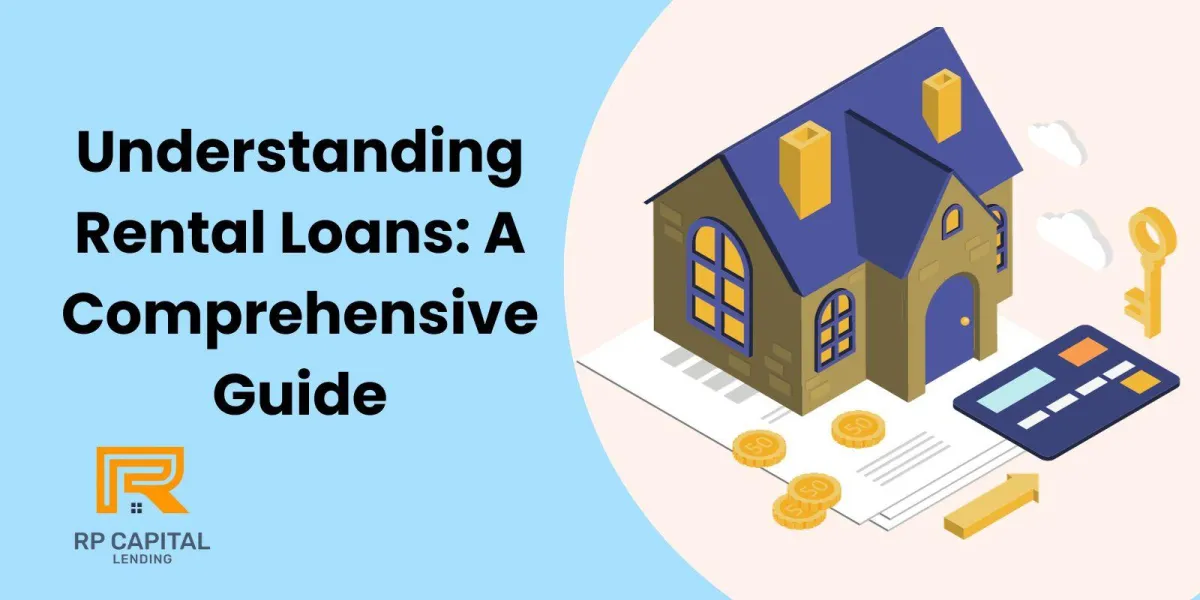Blog

Understanding Rental Loans: Definition, Tips, Pros and Cons
Rental properties are one of the most rewarding avenues for building long-term wealth and creating passive income streams. However, acquiring such properties requires substantial upfront capital, which can be a hurdle for many investors. This is where rental loans come into play a specialized financial solution tailored for property investors.
This guide dives deep into rental loans, covering how they work, their advantages, challenges, and actionable tips for securing the best terms. Whether you’re a first-time landlord or a seasoned investor, understanding rental loans is essential for unlocking their full potential.
What Are Rental Loans?

Rental loans are loans specifically designed for purchasing or refinancing investment properties that generate rental income. Unlike traditional home loans, which primarily evaluate your personal income, rental loans focus on the cash flow generated by the property itself.
Key Features of Rental Loans:
Purpose: Exclusively for income-generating properties, such as single-family homes, duplexes, or multi-unit buildings.
Eligibility: Determined largely by the property’s rental income and your creditworthiness.
Loan Terms: Typically range between 5 to 30 years, offering flexibility.
Interest Rates: Higher than traditional loans, reflecting the investment risk.
How Do Rental Loans Work?
Rental loans differ significantly from traditional loans due to their reliance on Debt-Service Coverage Ratio (DSCR) as a key metric.
What Is DSCR?
DSCR measures the property’s ability to cover its debt obligations with its rental income.
Formula:
DSCR= Net Operating Income (NOI) / Debt Service
Net Operating Income (NOI): Rental income minus operating expenses (e.g., property taxes, insurance, maintenance).
Debt Service: Total loan payments, including principal and interest.
For example:
Monthly Rental Income: $2,500
Monthly Loan Payment: $2,000
DSCR: 25002000=1.25\frac{2500}{2000} = 1.2520002500=1.25
A DSCR of 1.25 or higher is typically required by lenders, indicating that the property generates 25% more income than its debt obligations.
Benefits of Rental Loans for Investors
Rental loans offer a range of advantages, making them an attractive option for investors.
Focus on Rental Income: Approval hinges on the property’s income potential, making it ideal for investors with irregular personal incomes.
Scalability: Rental loans allow you to grow your portfolio faster by leveraging existing properties’ income streams.
Tax Efficiency: Investors can deduct mortgage interest, property taxes, and depreciation from their taxable income.
Diverse Property Types: Use rental loans for single-family homes, vacation rentals, or multi-unit buildings.
Challenges of Rental Loans
While rental loans are advantageous, they come with some hurdles.
Higher Interest Rates: Expect rates 0.5%–1% above standard mortgages.
Strict Down Payment Requirements: Lenders typically require 20%–30% down.
Property Appraisal: The property must meet specific rental yield standards, which could limit options in high-cost areas.
Rental Loans vs. Traditional Mortgages
To make an informed decision, it’s crucial to understand how rental loans differ from traditional mortgages.

Graph: Average Rental Loan Interest Rates vs. Traditional Loan Rates

Here's a graph showcasing the average interest rate trends for rental loans versus traditional loans from 2020 to 2024. This visual representation highlights the higher costs associated with rental loans compared to traditional mortgages over the years.
How to Secure a Rental Loan?
Securing a rental loan involves strategic planning. Follow these steps to enhance your approval chances:
Analyze Your Property’s DSCR: Ensure the rental income comfortably covers loan payments. Aim for a DSCR of at least 1.25.
Improve Your Credit Score: A score of 700 or above can secure better interest rates.
Save for a Down Payment: Be prepared to put down at least 20% of the property’s purchase price.
Partner with Specialist Lenders: Choose lenders experienced in real estate investments.
Provide Complete Documentation: Include rental history, property appraisals, and detailed financial records.
Best Practices for Using Rental Loans
Once approved, maximize the benefits of your rental loan:
Invest in High-Yield Properties: Prioritize properties in locations with strong rental demand and competitive pricing.
Reinvest Cash Flow: Use rental income to finance repairs, upgrades, or future investments.
Monitor Market Trends: Stay informed about interest rate fluctuations and housing market trends to refinance when rates drop.
Frequently Asked Questions (FAQs)
1. Can I use a rental loan for short-term rentals like Airbnb?
Yes, many lenders allow rental loans for short-term rentals, provided the property meets the rental income criteria.
2. What credit score do I need to qualify for a rental loan?
A credit score of 700 or higher is typically required, though some lenders may accept scores as low as 620.
3. Are there tax benefits to using rental loans?
Yes, mortgage interest, property taxes, and certain operating expenses are deductible, lowering your taxable income.
4. What happens if my rental income decreases?
If rental income falls below expected levels, you may face challenges meeting loan obligations. Always maintain a reserve fund to cover such instances.
5. Can I refinance a rental loan?
Yes, refinancing is possible and often beneficial if market interest rates drop or your property’s value increases.
Conclusion
Rental loans are a game-changer for property investors, offering unique advantages like scalability, tax efficiency, and a focus on rental income. By understanding how these loans work, their benefits, and how to navigate their challenges, you can confidently grow your real estate portfolio and achieve long-term financial success.
If you’re ready to explore rental loans, consult with a specialist lender to tailor the perfect solution for your investment goals.
Learn More:
Do You Have To Depreciate Rental Property?
Maximizing ROI: Strategies for Securing Rental Property Financing
Disclaimer: Loans only apply to non-owner occupied properties. Rates, terms and conditions offered only to qualified borrowers, may vary upon loan product, deal structure, other applicable considerations, and are subject to change at any time without notice.
Copyright © 2025. All Rights Reserved.


